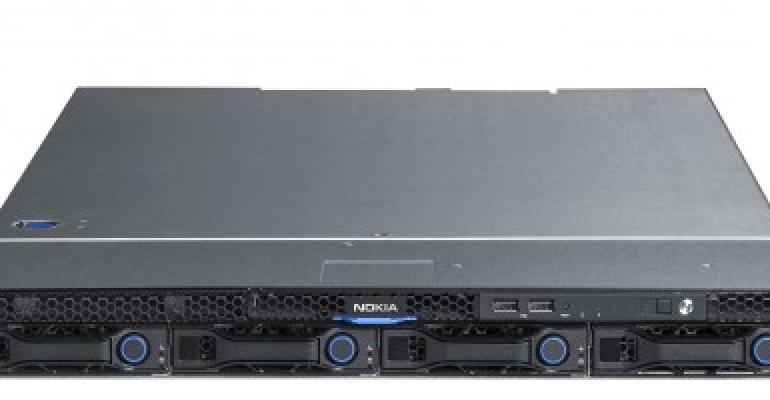Nokia has launched a cloud infrastructure package for telcos called Nokia AirFrame Data Center Solution. It is meant to enable telcos to set up localized, or "edge" data centers running on Intel servers to provide cloud infrastructure that addresses rising demand for mobile traffic.
The first wave of telco clouds was about taking core applications to a virtualized environment in centralized data centers. The second iteration is more distributed for delivery of services at closer proximity, while addressing the demand for higher processing power.
IT and telco domains are merging with a new breed of telco-focused clouds. Nokia said its cloud employs advanced telco cloud security practices, which have been tested and approved at the Nokia Security Center in Berlin. As telcos move from centralized to distributed models of serving customers, there are security, orchestration, automation, and lifecycle management issues.
Nokia has built pre-integrated racks consisting of ultra-dense servers, high performance switches, and software defined storage called AirFrame Cloud Servers and Switches. These modules include Nokia Networks-specific enhancements to make it more efficient at running Virtualized Network Functions. Ideally, they can be installed next to base station gear to connect local callers to wider voice and data networks.
AirFrame is complemented with a suite of professional services geared for implementing, monitoring, and operating a telco cloud data center.
The more flexible and distributed cloud architecture enables mobile operators to serve locally, reducing latency. The ultra-dense servers can also handle demand for higher processing needs. The offering is 5G-ready, according to the company.
Nokia believes it is merging the IT and telco domains with the offering. The distributed cloud is architected to run data-demanding telco applications like mobile network Virtual Network Functions (VNFs) but is also fully compliant with IT standards to run your common IT application in parallel to telco cloud needs.
“We are taking on the IT-telco convergence with a new solution to challenge the traditional IT approach of the data center,” said Marc Rouanne, executive vice president, Mobile Broadband, Nokia Networks, in a press release. “This newest solution brings telcos carrier-grade high availability, security-focused reliability as well as low latency, while leveraging the company's deep networks expertise and strong business with operators to address an increasingly cloud-focused market valued in the tens of billions of euros."
The move puts Nokia in competition with other network-focused cloud offerings being developed to help telcos better serve customers locally.
Mobile competitor Ericsson is also developing similar data center services. It has a cloud for telcos in the works built atop of OpenStack. The company has also invested in SDN providers like startup Pluribus and purchased data center management software firm Sentilla last year.
Behind Nokia’s cloud is a lot of research and development. Nokia also announced it opened an R&D facility for data center technology development.





